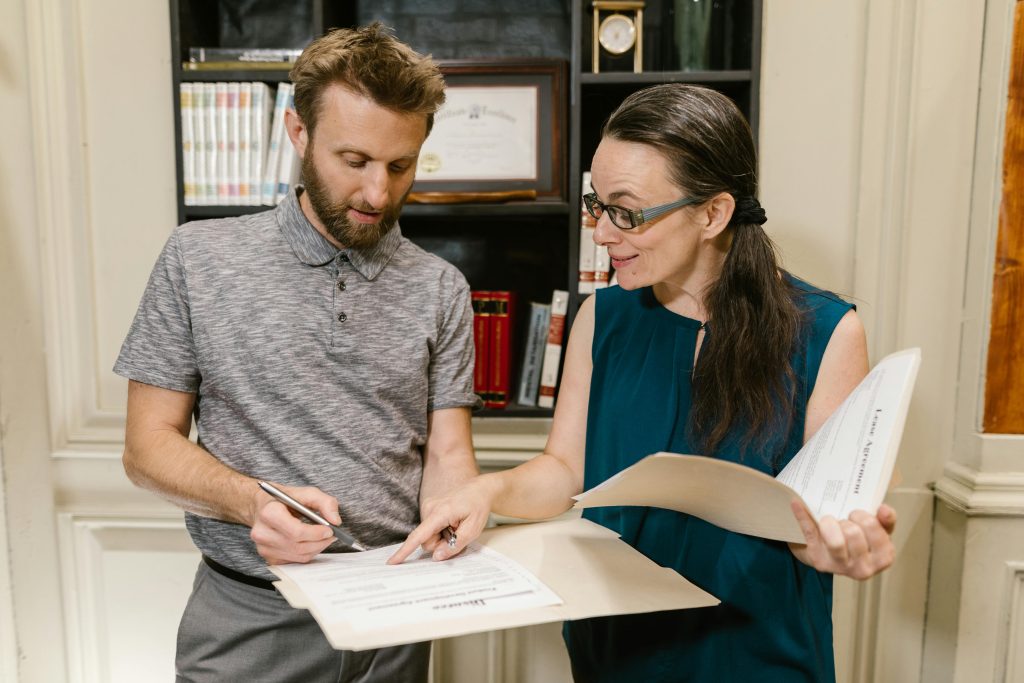
The power of a letter before action in a business dispute
If you are involved in a business dispute, then it is sensible to try to resolve the matter as quickly and cost-efficiently as possible to
Unfortunately, there can be situations where a person has lost the ability to manage their day-to-day welfare and financial affairs but does not have in place a valid Lasting Power of Attorney. That’s when you should contact us at Martin Shepherd Solicitors.
With our expertise in Court of Protection matters and deputyship applications, we are here to provide guidance and support. Our team understands the sensitivity and urgency of these situations and will work tirelessly to ensure that the best interests of the individual are protected. Whether you are seeking to appoint a deputy or require assistance with Court of Protection proceedings, you can rely on us to provide compassionate and effective legal representation.
Contact Martin Shepherd Solicitors today to discuss your Court of Protection and deputyship needs. We are here to help you navigate the legal process with care and professionalism.
If someone lacks mental capacity and does not have a Lasting Power of Attorney, a family member or friend may need to seek approval from the Court of Protection. This allows them to be appointed as a Deputy to handle important decisions regarding healthcare, property, and finances on behalf of the individual.
This process can be complex, time-consuming and confusing. At Martin Shepherd Solicitors, we strive to simplify this process for you.
Martin Shepherd Solicitors offers assistance in gathering the necessary medical information required for the application, such as permission to sell a property, making it easier for you to manage your loved one’s affairs.


Deputyship is a legal mechanism designed to assist individuals who lack mental capacity in making decisions concerning their welfare and assets. This arrangement typically applies to individuals who are unable to make decisions due to conditions like dementia, stroke, or other incapacitating factors.
Do you need assistance with your deputyship application to the court? Learn more about the Court of Protection and Deputyship at our Hertford, Potters Bar and Finchley offices.


The Deputy’s powers derive from the Order made by the Court of Protection. The Order may set limits on those powers and such powers must not be exceeded.
A Deputy’s general duties are set out in detail in the Mental Capacity Act 2005, including the following, important principles:
In addition to following these general principles, the Court of Protection places numerous obligations on a Deputy including:
The Order will, as appropriate, also deal with the Deputy’s powers including matters such as:
dealing with the person’s bank or Building Society accounts;
Further applications for additional orders may be required in certain circumstances, for example in relation to co-owned property.
Apply to court with our help. We can advise you on the Court of Protection and Deputyship at our Finchley, Potters Bar and Hertford offices.
The Court of Protection application costs are broken down into two areas:
Fixed costs also apply for each year of general management where there is a professional deputy.
In complex cases, these costs are approved by the Court before payment is made from the client’s resources. However, in cases where the mentally incapable person has recovered compensation as a result of an accident or clinical negligence, the cost of a professional deputy is often recovered as part of the claim.
All of these fees are recoverable from the mentally incapable person’s assets.
A deputyship order is terminated when the person lacking capacity dies or recovers capacity, or if the Order is limited in time and expires. It can also be discharged by order of the Court of Protection or on application by the Deputy, for example, if he wishes to retire or resign.
If you need expert legal advice and representation regarding Court of Protection and deputyship matters, do not hesitate to contact Martin Shepherd Solicitors. Our dedicated team of Court of Protection solicitors is here to assist you every step of the way.
Reach out to us today to discuss your concerns and legal needs. You can contact Debbie Gibbs at dg@martinshepherd.co.uk or Gareth Humberstone at gh@martinshepherd.co.uk. We are committed to providing you with the support and guidance you require during challenging times.
The Court of Protection is a specialised court in the UK responsible for making decisions on behalf of individuals who lack the mental capacity to make their own decisions. It handles matters related to financial affairs, healthcare, and personal welfare.
You should consider applying for deputyship if a loved one has lost the ability to manage their affairs due to mental incapacity and does not have a valid Lasting Power of Attorney in place. Deputyship allows you to make important decisions on their behalf, ensuring their needs are met.
Any individual over the age of 18 can potentially act as a deputy after being appointed by the Court of Protection. Deputies have various responsibilities, including managing the person’s financial affairs, making healthcare decisions, and ensuring their well-being.
The process for applying for deputyship involves submitting an application to the Court of Protection, providing necessary documentation and evidence of the person’s incapacity, and attending court hearings if required. Martin Shepherd Solicitors can guide you through this process.
Yes, deputyship arrangements can be challenged under certain circumstances, such as allegations of misconduct or concerns about the deputy’s suitability. Our team can provide expert advice and representation in such situations.
The costs associated with deputyship applications include fees charged by the Court of Protection and legal costs. These fees are typically recoverable from the assets of the person lacking mental capacity. Martin Shepherd Solicitors can provide guidance on navigating these costs.
A deputyship order lasts until the person lacking mental capacity either recovers capacity, passes away, or the order is terminated by the Court of Protection. It can also be discharged by the deputy in certain circumstances. Our team can advise you on the duration and termination of deputyship orders.

If you are involved in a business dispute, then it is sensible to try to resolve the matter as quickly and cost-efficiently as possible to
Do you have any questions that we haven’t answered on this page? Click the button below or fill out the form to receive a consultation with one of our professionals.
Do you have any questions that we haven’t answered on this page? Click the button to get in contact with a member of our team.
The legal information on this website cannot be regarded as a definitive statement of the law or of the effect of the law, and does not comprise, and should not be relied on as giving, legal advice.
It has been prepared in good faith, but none of the individuals responsible for or involved in its preparation accept any legal responsibility or liability for anything done in reliance on it.
Martin Shepherd Solicitors LLP is a limited liability partnership registered in England & Wales, registration number OC356132, Potters Bar – Head Office, Maple House, High Street Potters Bar London EN6 5BS where a list of the members is kept.
Martin Shepherd Solicitors LLP is authorised and regulated by the Solicitors Regulation Authority numbers: 560729 (Potters Bar – Head Office); 562353 (Finchley office); 615079 (Hertford office). VAT Registration Number 116 9785 78